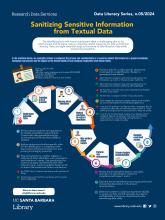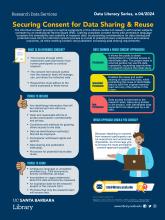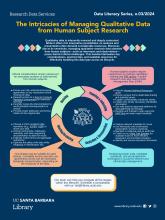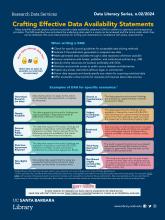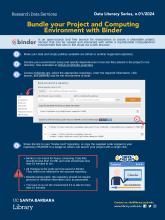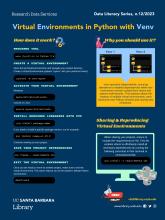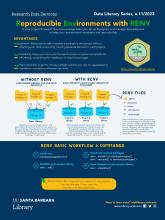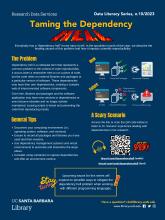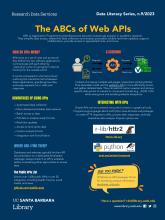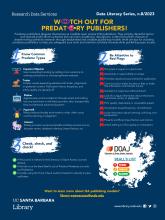Data Literacy Series Search
Sanitizing Sensitive Information from Textual Data
De-identifying text with human participant data is challenging due to its unstructured and sensitive nature, requiring careful measures for safe and ethical sharing. Here are eight essential steps to minimize re-identification risks while preserving reusability.
PDF - ALTTAGS: Data Ethics, De-Identification, Qualitative Data, Sensitive Data
DATE: 05-2024
Securing Consent for Data Sharing & Reuse
The informed consent process is a central component of the ethical conduct of research with human subjects overseen by an Institutional Review Board (IRB). Crafting compliant consent forms with permissive language broadens the shareability and usability of research data. Incorporating considerations for data sharing and potential reuse into the informed consent process is crucial to preempt future complications and adverse outcomes, all while meeting funders' and publishers' increasing data sharing requirements.
PDF - ALTTAGS: Consent Forms, Data Ethics, Data Sharing, Data Reuse, Human Subject Research, Informed Consent
DATE: 04-2024
The Intricacies of Managing Qualitative Data from Human Subject Research
Qualitative data is inherently nuanced and deeply contextual. While it offers rich interpretive possibilities, its analysis and presentation often demand considerable resources. Moreover, due to its sensitivity, managing qualitative research data obtained from human subjects—such as interviews and observations— poses distinct ethical challenges. This handout delineates key considerations, practical tips, and available resources for effectively handling this data type across its lifecycle.
PDF - ALTTAGS: Data Management, Data Sharing, Data Ethics, Qualitative Data, Human Subjects, Sensitive Data
DATE: 03-2024
Crafting Effective Data Availability Statements
Many scientific journals require authors to provide a data availability statement (DAS) to adhere to openness and transparency principles. The DAS specifies how and where the underlying data used in a study can be accessed and the terms under which they can be obtained. We cover best practicves for writing such statements in compliance with policy requirements.
PDF - ALTTAGS: Data Sharing, Data Reuse, Data Access, Data Licensing, Open Data, Restricted Data
DATE: 02-2024
Bundle your Project and Computing Environment with Binder
Binder is an open-source and free service for researchers to create a shareable project version that can be viewed and interacted with within a reproducible computational environment that runs in the cloud via a web browser.
PDF - ALTTAGS: Code Documentation, Dependency Management, Reproducibility
DATE: 01-2024
Virtual Environments in Python with Venv
Venv operates independently, ensuring alterations to installed dependencies within one environment remain isolated from others and system-wide libraries. This isolation allows the creation of multiple virtual environments, each hosting its own Python versions and varying sets of libraries.
PDF - ALTTAGS: Code Documentation, Dependency Management, Reproducibility, Python programming
DATE: 12-2023
Reproducible Environments with RENV
Is your project R-based? The renv package helps you set up R projects and manage dependencies to keep your environment consistent and reproducible.
PDF - ALT
TAGS: Reproducibility, Dependency Management, Code Documentation, R Programming
DATE: 11-2023
Taming the Dependency Hell
Everybody has a "dependency hell" horror story to tell. In the spookiest month of the year, we describe the leading causes of this problem and how it impacts scientific reproducibility.
PDF - ALTTAGS: Reproducibility, Dependency Management, Code Documentation
DATE: 10-2023
The ABCs of Web APIs
APIs or Application Programming Interfaces have become increasingly popular in academic research. They simplify data access, streamline data collection and analysis processes, enable real-time updates, support collaboration, provide access to specialized tools, and more.
PDF - ALTTAGS: API, Data Access
DATE: 09-2023
Watch Out for Predatory Publishers
Predatory publishers disguise themselves as credible open access (OA) publishers. They employ deceitful tactics and operate profit-driven schemes that can harm academics' reputations, undermining their chances of disseminating authentic research through established and credible publishing models. Here are tips for avoiding predatory publishers to help you safeguard your work and maintain scholarly honesty while publishing open access.
PDF - ALT